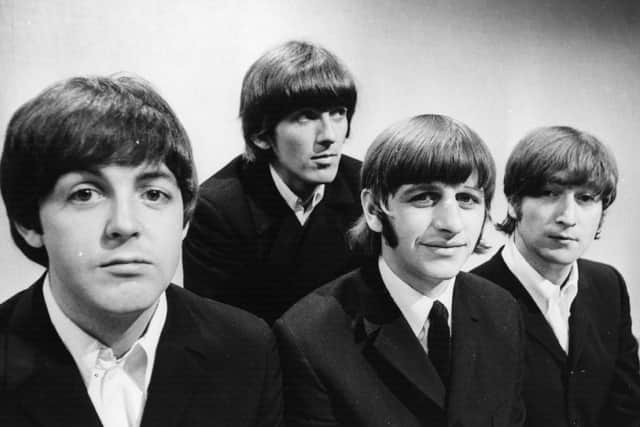The Beatles: why did Liverpool’s Fab-Four split up in the 1970s and who left the rock band first?
and live on Freeview channel 276
The Beatles, also known as Liverpool’s Fab-Four, were responsible for some of the greatest hits of all time during their brief timespan.
John Lennon, Paul McCartney, George Harrison and Ringo Starr burst onto the music scene in 1963 and became superstars across the globe.
Advertisement
Hide AdAdvertisement
Hide AdHowever, everything good has to end, and the band left fans heartbroken after splitting in the 1970s.
But why did the band’s members decide to go their separate ways? Here we take a look at all the different reasons for the split.


Why did the Beatles break up?
There are numerous factors attributed to the break up of The Beatles, who parted in the 1970’s.
The sudden tragic death of their manager Brian Epstein in 1967 is thought to have been a huge contributing factor. After Epstein died of a medical drug overdose, the band were forced to take business matters into their own hands, which added extra stress to their already chaotic lives.
Advertisement
Hide AdAdvertisement
Hide AdWhile Lennon, Harrison and Starr wanted Allen Klein, manager of the Rolling Stones, to take over, McCartney proposed his father-in-law’s company take charge and became unhappy when he was outvoted.
John Lennon’s then-girlfriend Yoko Ono is also often cited as a factor in the split after the pair became inseparable, causing tensions between Ono and other band members, specifically McCartney and Harrison.
The group later admitted that Yoko Ono was not to blame for the breakup and that the band were already moving on with their careers.
When Lennon and Ono appeared on The Dick Cavett show in 1972, Lennon said: “Anyway, she didn’t split The Beatles because how could one girl or one woman split The Beatles. They were drifting apart on their own.”
Advertisement
Hide AdAdvertisement
Hide AdIt is believed the band began drifting apart as early as 1966 when they stopped touring.
After finishing their Sgt. Pepper’s Lonely Hearts Club Band album, which would go on to be a huge success, the group’s creative differences became more apparent.
Who left the Beatles first?
Two years before The Beatles officially broke up, the band’s drummer Ringo Starr, unofficially quit for two weeks.
Ringo became unhappy with the constant bickering and felt uninspired during the recording of “White Album” in August 1968, but later returned.
Advertisement
Hide AdAdvertisement
Hide AdGeorge Harrison also briefly left the band when recording the Get Back/Let it Be sessions.


He thought his ideas were being overlooked and after a row with Paul on 10 January 1969, during a lunch break, George told the others that he was leaving The Beatles.
The Beatles planned to replace him but invited him back to create another album.
On 20 September 1969, John Lennon informed Paul McCartney and Ringo Starr that he was quitting The Beatles, telling them he wanted a “divorce”.
Advertisement
Hide AdAdvertisement
Hide AdThat same day, the band signed a renegotiated recording contract, and Klein and McCartney urged Lennon to keep his announcement private, which he agreed to do.
McCartney recalled in Anthology: “[John said] ‘I wasn’t gonna tell you ‘til after we’d signed the contract, but I’m leaving the group’. Our jaws dropped, and we signed the new deal in a daze.”
Although the official announcement arrived a year later, it would effectively signal the end of the iconic band.


On 10 April 1970, Mccartney caused a storm in the media by answering a journalist’s question with the claim that The Beatles no longer existed.
Advertisement
Hide AdAdvertisement
Hide AdThe remaining members of The Beatles publicly confirmed their break-up on 31 December 1970, when Paul filed a lawsuit against John, George and Ringo to dissolve the Beatles.
Why did Paul McCartney sue The Beatles?
McCartney filed a lawsuit against the other three members of The Beatles in London’s High Court of Justice in 1970 for dissolution of the band’s contractual partnership.
The court ruled in favour of McCartney, leaving The Beatles as a legal entity to finally end on 29 December 1974.
“The only way for me to save The Beatles and Apple — and to release Get Back by Peter Jackson, which allowed us to release Anthology and all these great remasters of all the great Beatles records — was to sue the band,” McCartney told British GQ. “If I hadn’t done that, it would have all belonged to Allen Klein. The only way I was given to get us out of that was to do what I did.”
